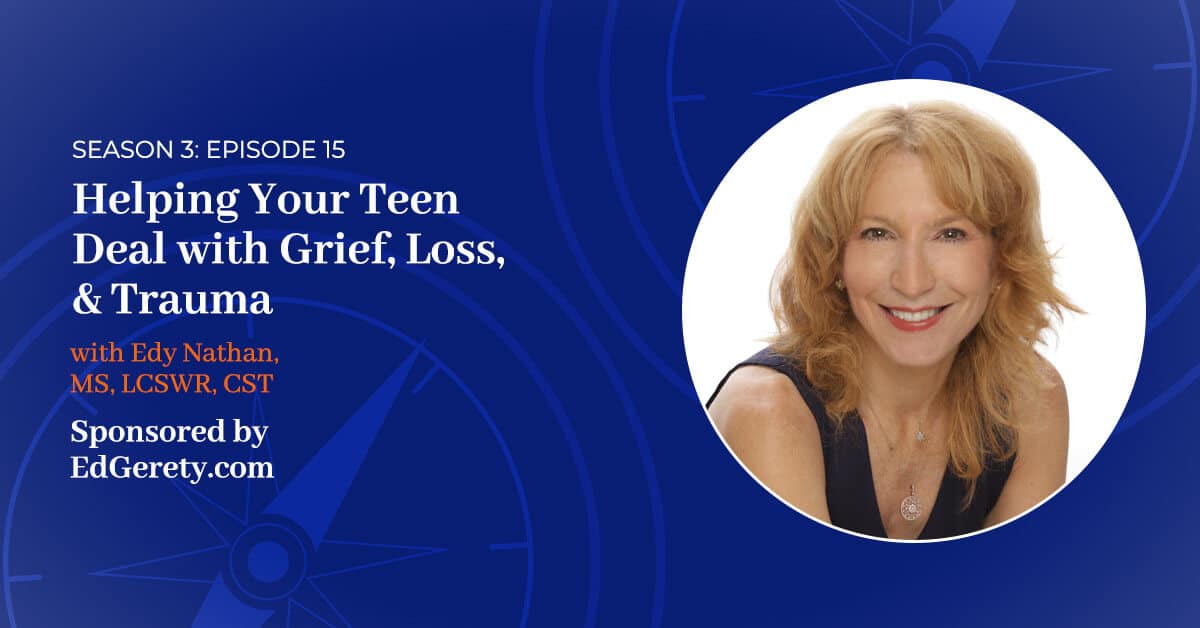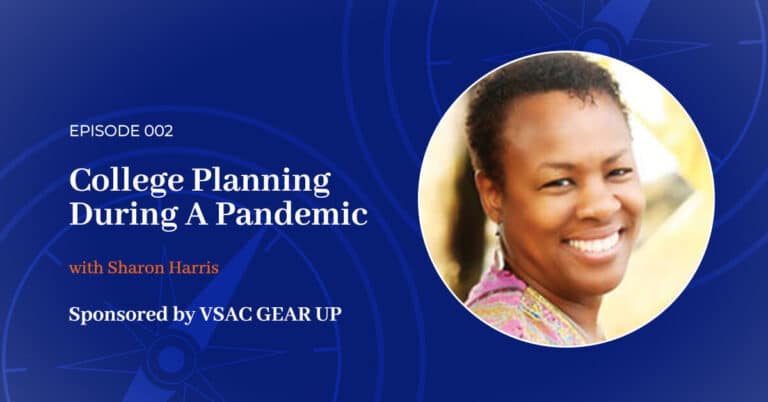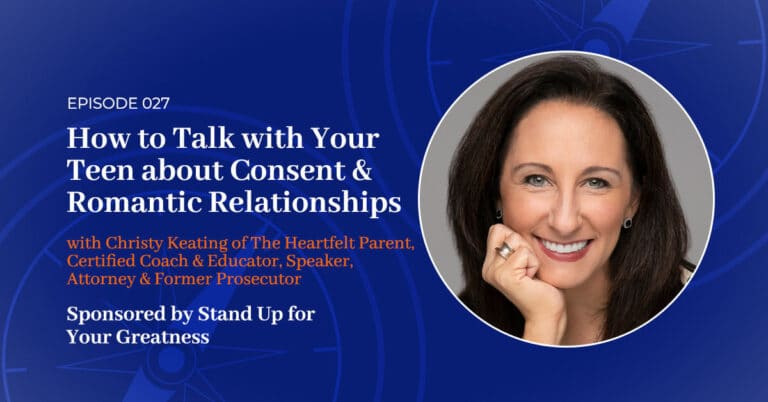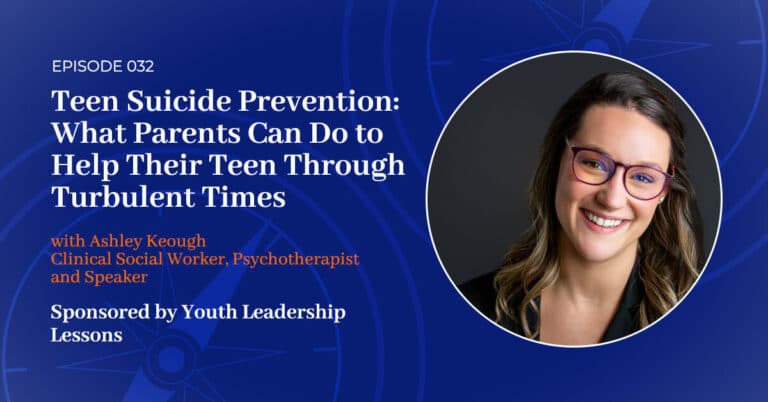Edy Nathan’s private practice focuses on grief, trauma, loss and sex. Tough conversations people don’t like to have yet cause obstacles in creating a life worth living. Edy earned her master’s degrees from New York University and Fordham University in New York City. Edy is a Psychology Today blogger, international speaker, and workshop innovator. She is the author of “It’s Grief: The Dance of Self-Discovery through Trauma and Loss.”
Key Takeaways
- Grief is not just something your teen gets over, and grief is not only when someone they love dies.
- When you ask your teen “what are you yearning for and what’s missing” you may learn more about what they’re grieving. They may be feeling out-of-sync, moody, restless, emotional; have a desire and hunger to fit in, to be included…these are forms of grief and loss.
- Parents who want to help their teen deal with grief and loss and find that their teen doesn’t want to talk about it, will need to be creative in how they engage their teen. It might be through an activity, involving them in something they love; being a witness to their experience without asking something of them.
- Parents who want to help their teen deal with grief and loss and find that their teen doesn’t want to talk about it, will need to be creative in how they engage their teen. It might be through an activity, involving them in something they love; being a witness to their experience without asking something of them.
- 11 phases of grief, it’s a journey. They’re going to go through many phases. Be there for them as a good listener and love them through it.
- It’s important for adults/parents to seek the help they personally need when they are grieving so they can be in a place to support their teen.
- As a parent, you may find yourself grieving when your teen leaves the family home for college, a job, military, etc. When you’re feeling the loss of a child, it’s important to let your teen know that it’s not their responsibility for how you’re feeling. Let them know they have a right to go on their own path.
- If your teen closes the door on your relationship after they leave the family home without an understanding of why, continue to honor who your child/adult is. Perhaps sometime in the future, they will remember the good times, and possibly reopen the relationship.
- Parents can look at their own trauma, where that may have bled out into their relationships with their teens, this can be healing and helpful in moving forward.




